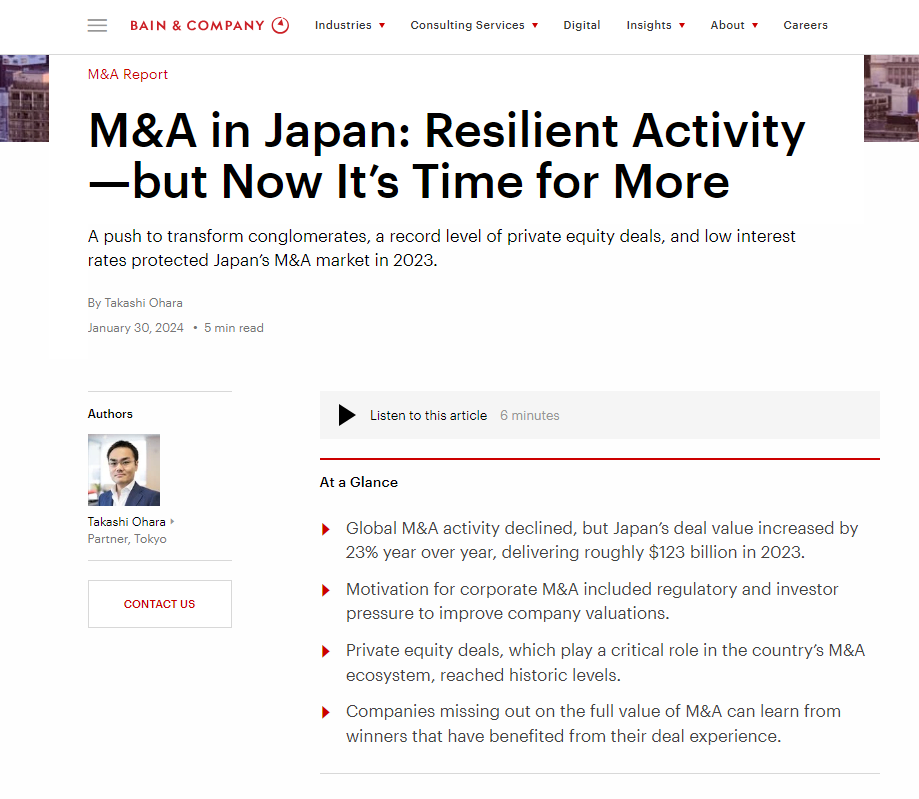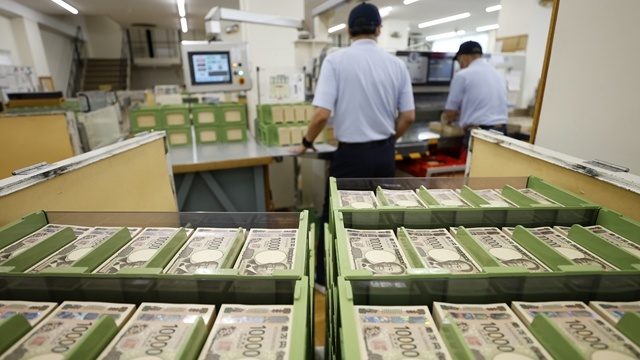Admist Global Downturn, Japan Holds Its M&A Position
Japan's M&A market remains buoyant despite sluggish global deals, and a stable investment climate has attracted numerous international investors.
Due to Japan's monetary policy being markedly different from that of the United States and Europe, and the recent rapid depreciation of the yen significantly lowering transaction costs, Japanese assets have caught the attention of many overseas investors.
Recently, the Bank of Japan announced a change to its ultra-low interest rate policy. This news suggested that the move might reverse the current economic situation. However, there are other factors driving the robust development of the country's M&A market.
Data from Pitchbook shows that in 2023, global M&A activity declined in both transaction volume and value, but the number of transactions targeting Japanese companies remained stable—with 186 deals valued at $12.1 billion in 2023 compared to 188 deals valued at $21.1 billion in 2022.
Bain & Company's early-year report, "Japan M&A: Clear Signs of Recovery - The Time is Now," highlighted that private equity deals hit an all-time high in 2023.

As Japan's post-pandemic economy finally begins to recover, albeit at a slower pace compared to other countries, the market is seeing a moderate rebound driven by low-interest rates and increased business investment. However, in the current environment of heightened geopolitical uncertainty, investors are more cautious than ever.
As a long-term trading partner of the United States and Europe, Japan is highly attractive to risk-averse investors. In the U.S., both current President Joe Biden and his rival Donald Trump have publicly emphasized the importance of U.S.-Japan bilateral relations and stated that regardless of who is elected as the next president, efforts to strengthen investment flows between the two countries will be intensified.
Furthermore, Japan's moderate political stance makes it a low-risk investment destination with a well-developed legal and regulatory system, a fair judicial system, and reliable infrastructure, making it a popular area for multinational corporations to consolidate their global supply chains.
Japan is known as one of the most trustworthy countries in the Asia-Pacific region for combating corruption and bribery, with most Japanese companies providing reliable and audited data for investors. Transparency International's Corruption Perceptions Index ranks Japan in the top 10 out of 180 countries.
Like other countries, Japan revised its foreign investment regulations a few years ago under the Foreign Exchange and Foreign Trade Act, expanding the range of industries requiring pre-investment notification and lowering the threshold for such declarations to control investments in sectors involving sensitive information or technologies. Meanwhile, the number of tourists visiting Japan continues to hit new highs, boosting investment interest as people travel.

Although Japan has traditionally been a destination for foreign investors targeting passive assets (such as real estate or small renewable energy facilities), in recent years, amid increasing global competition and tightening stock exchange and corporate governance standards, Japanese companies have recognized the need to optimize their investment portfolios and cut unprofitable assets. As a result, they are beginning to consider selling some non-core business units while transitioning to data-driven business models.
For example, in March this year, Panasonic decided to sell its automotive business to U.S. private equity firm Apollo Global Management; Hitachi has sold nearly $20 billion worth of businesses over the past five years; U.S. private equity firm Blackstone Group has also strengthened its operations through a series of recent acquisitions; last year, acquisition fund Japan Industrial Partners completed the privatization of Toshiba.
In 2024, the conditions for M&A transactions within Japan are mature, and with thorough preparation and clear strategies, the attractiveness of Japanese M&A deals to foreign investors will continue to increase.
·Original
Disclaimer: The views in this article are from the original Creator and do not represent the views or position of Hawk Insight. The content of the article is for reference, communication and learning only, and does not constitute investment advice. If it involves copyright issues, please contact us for deletion.